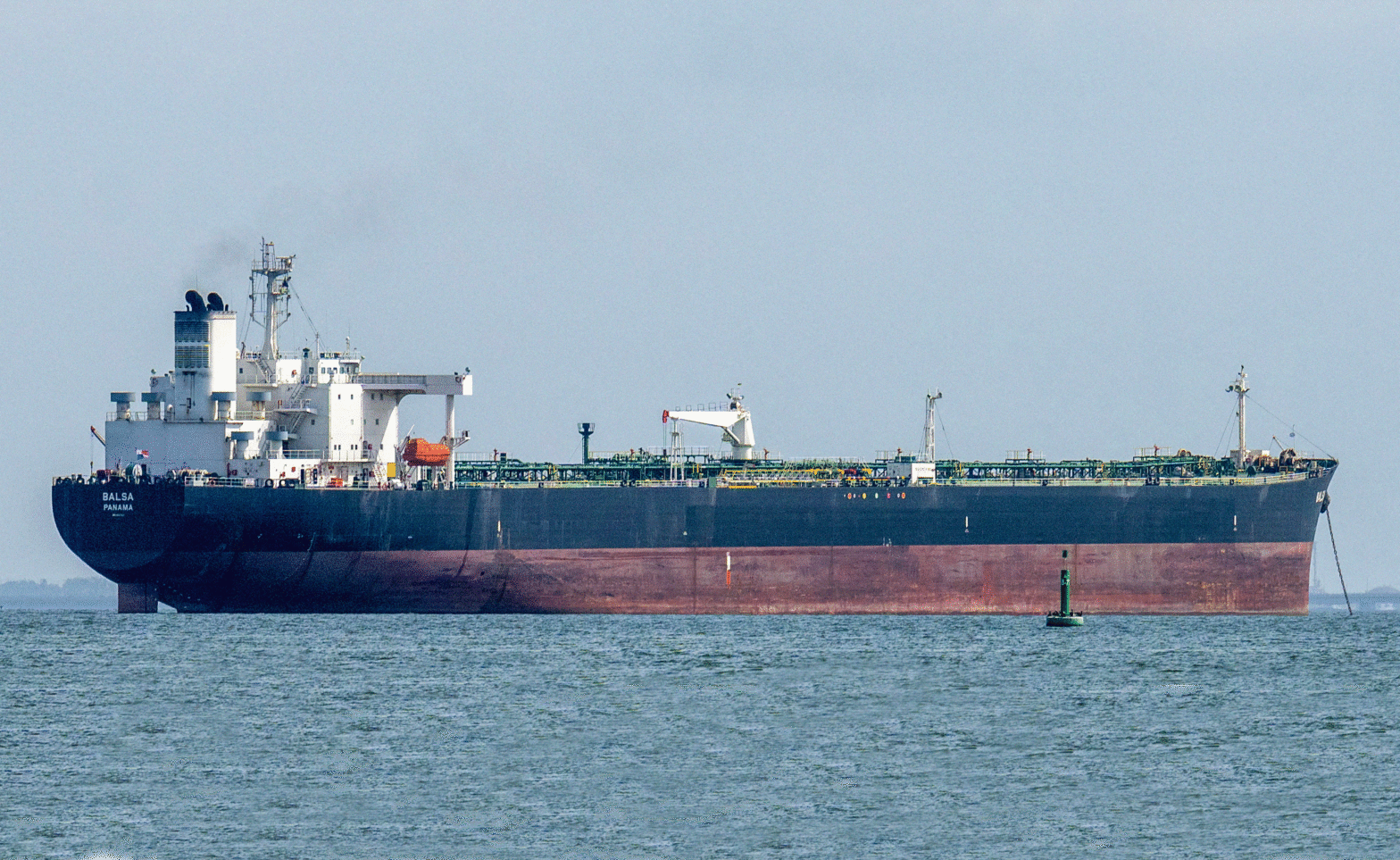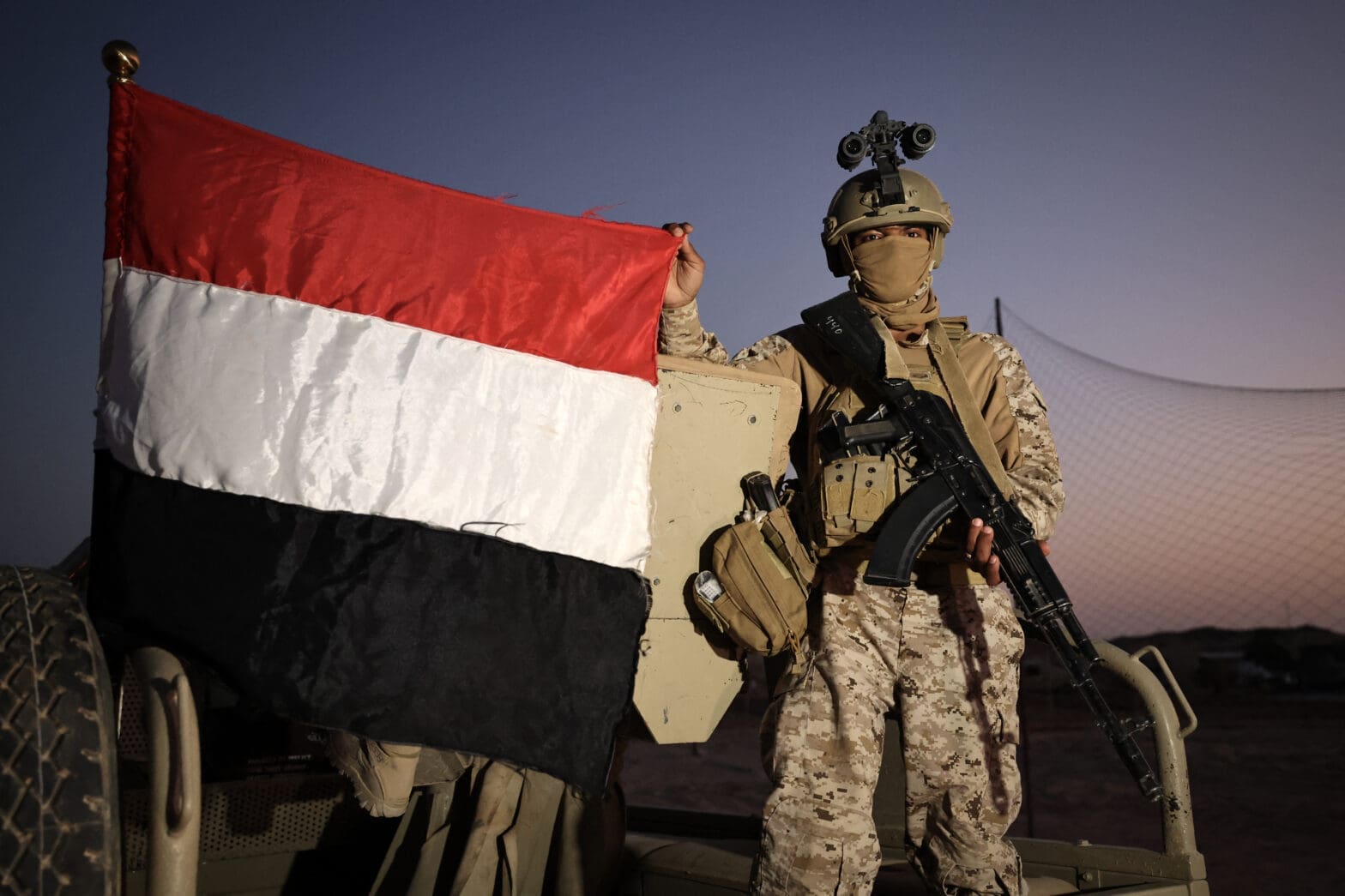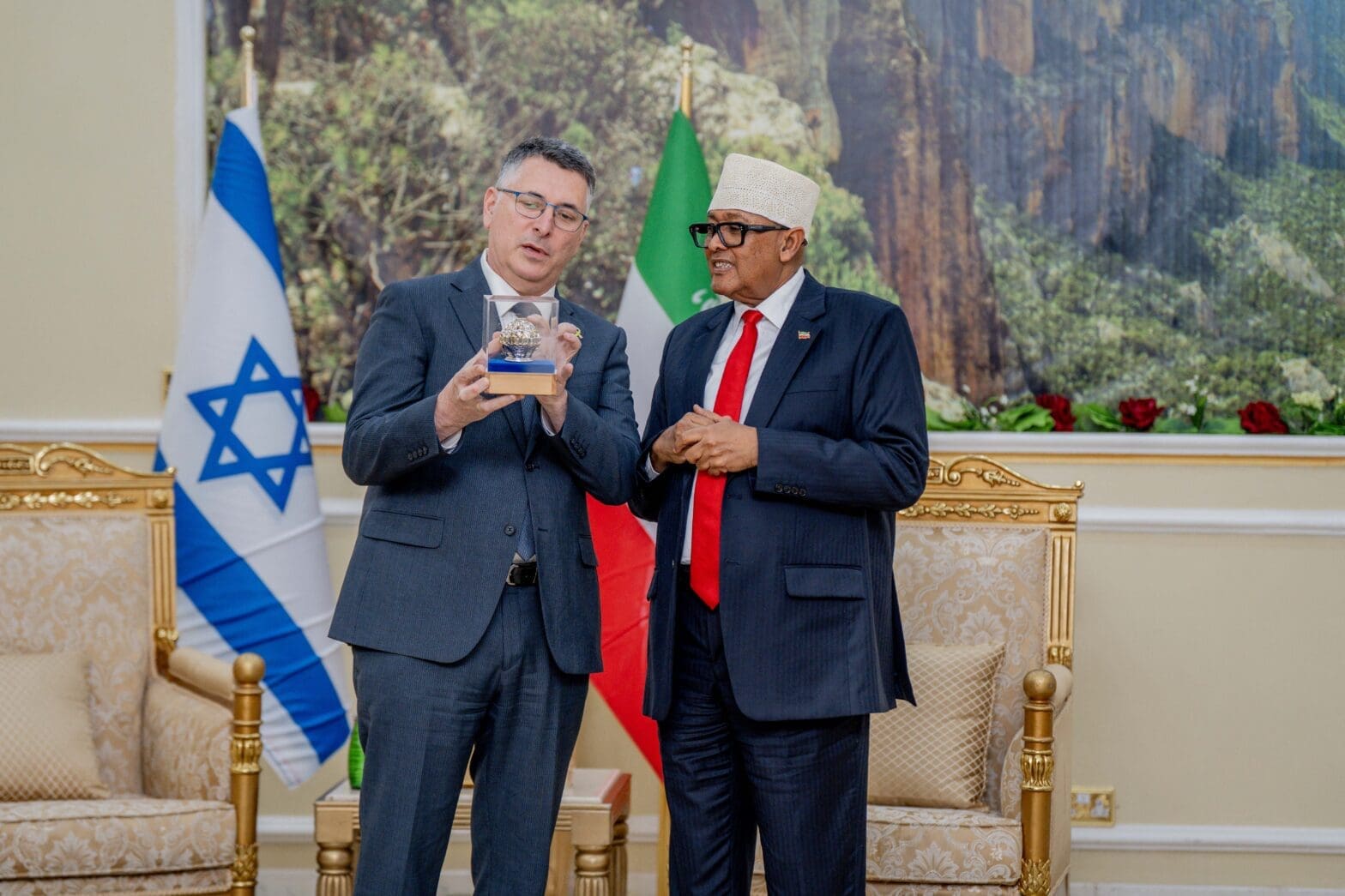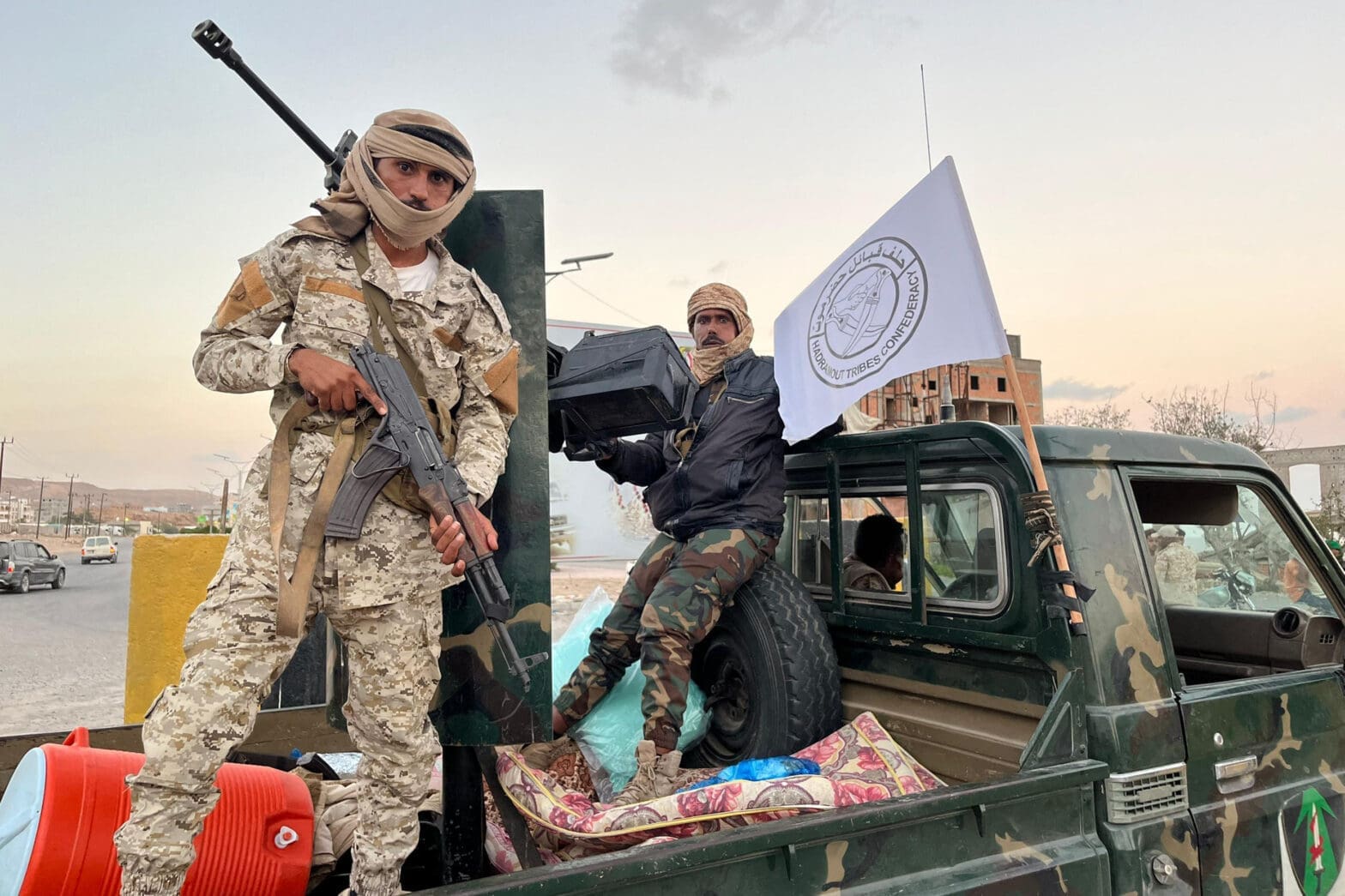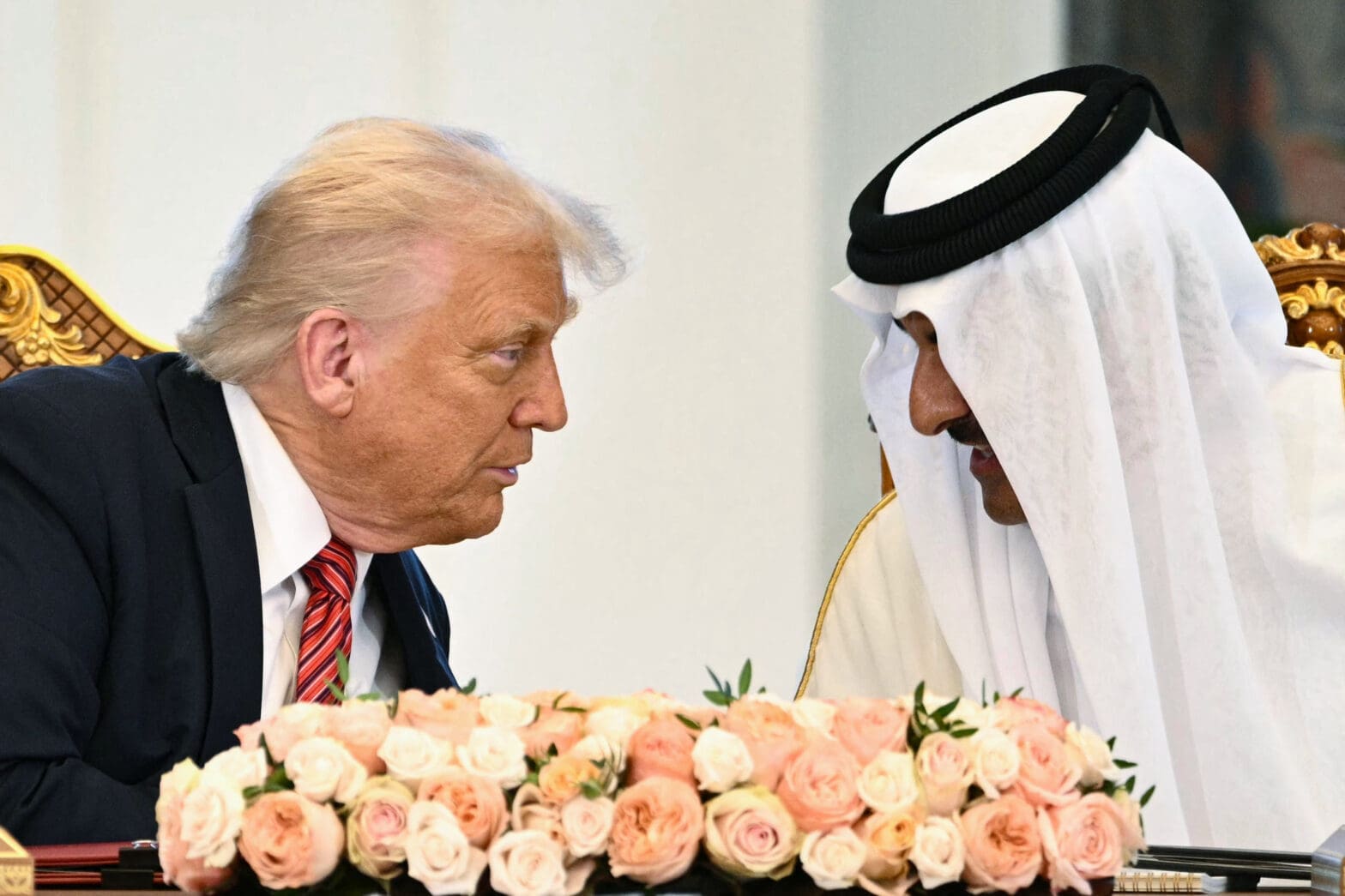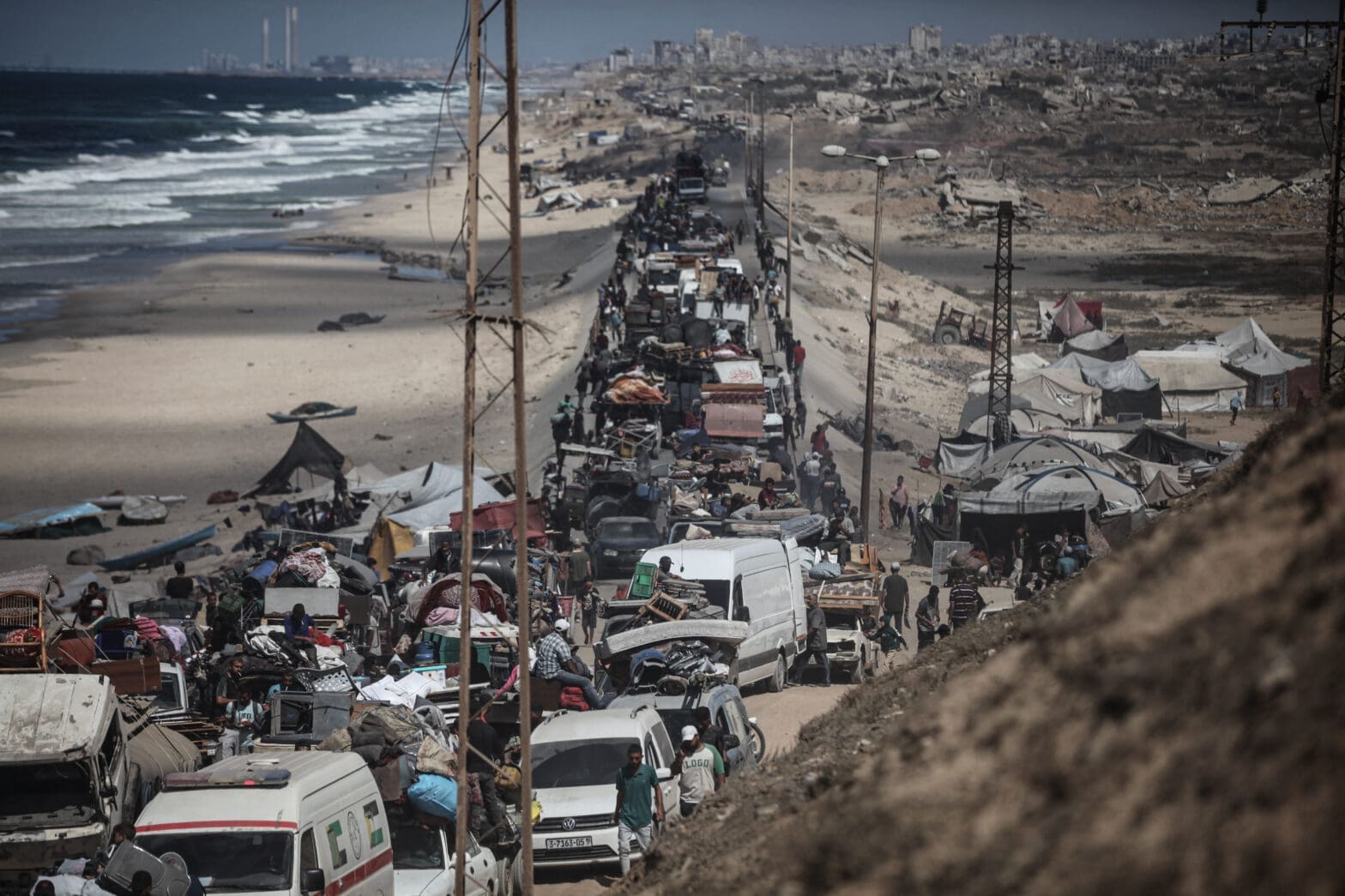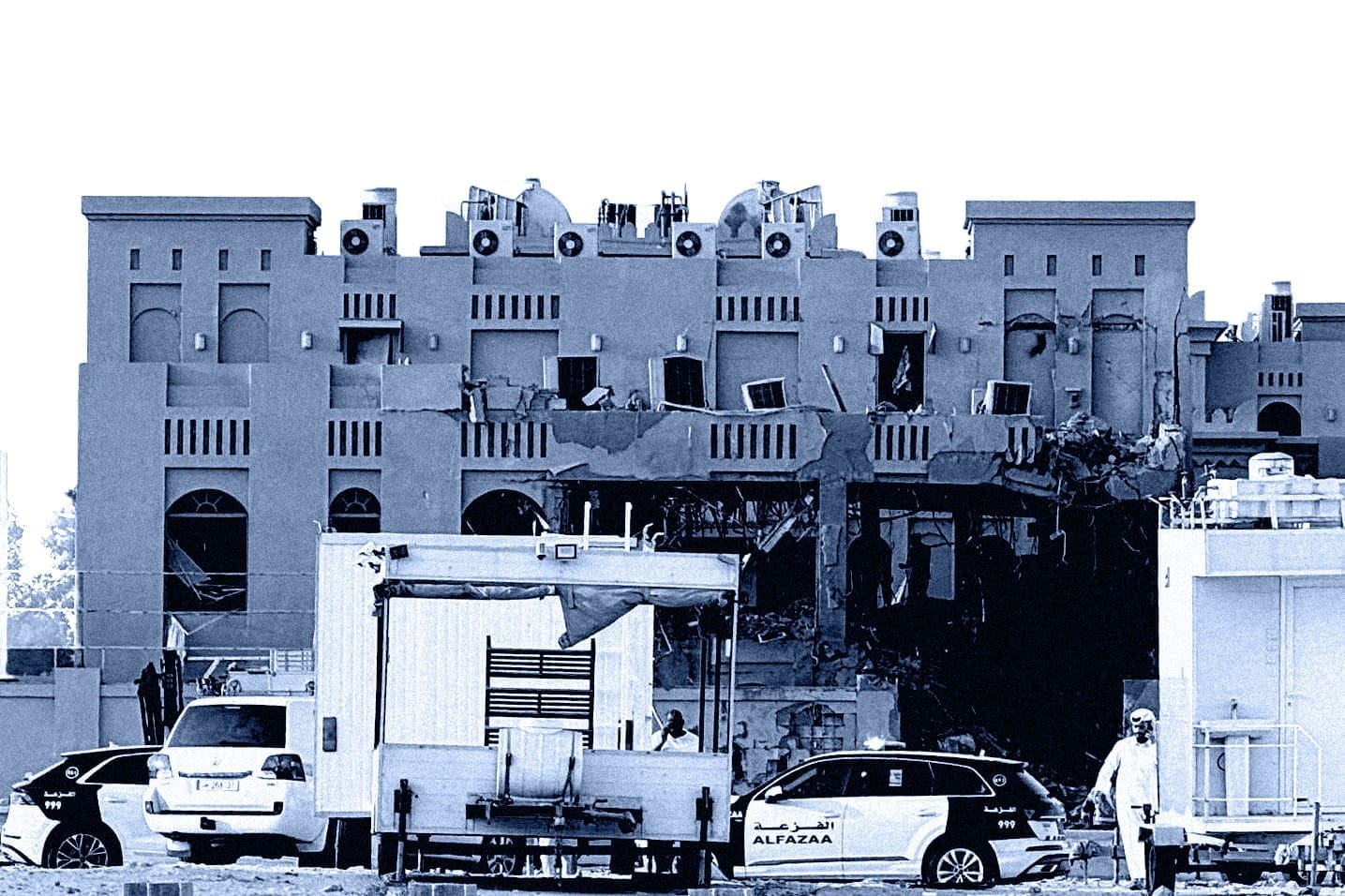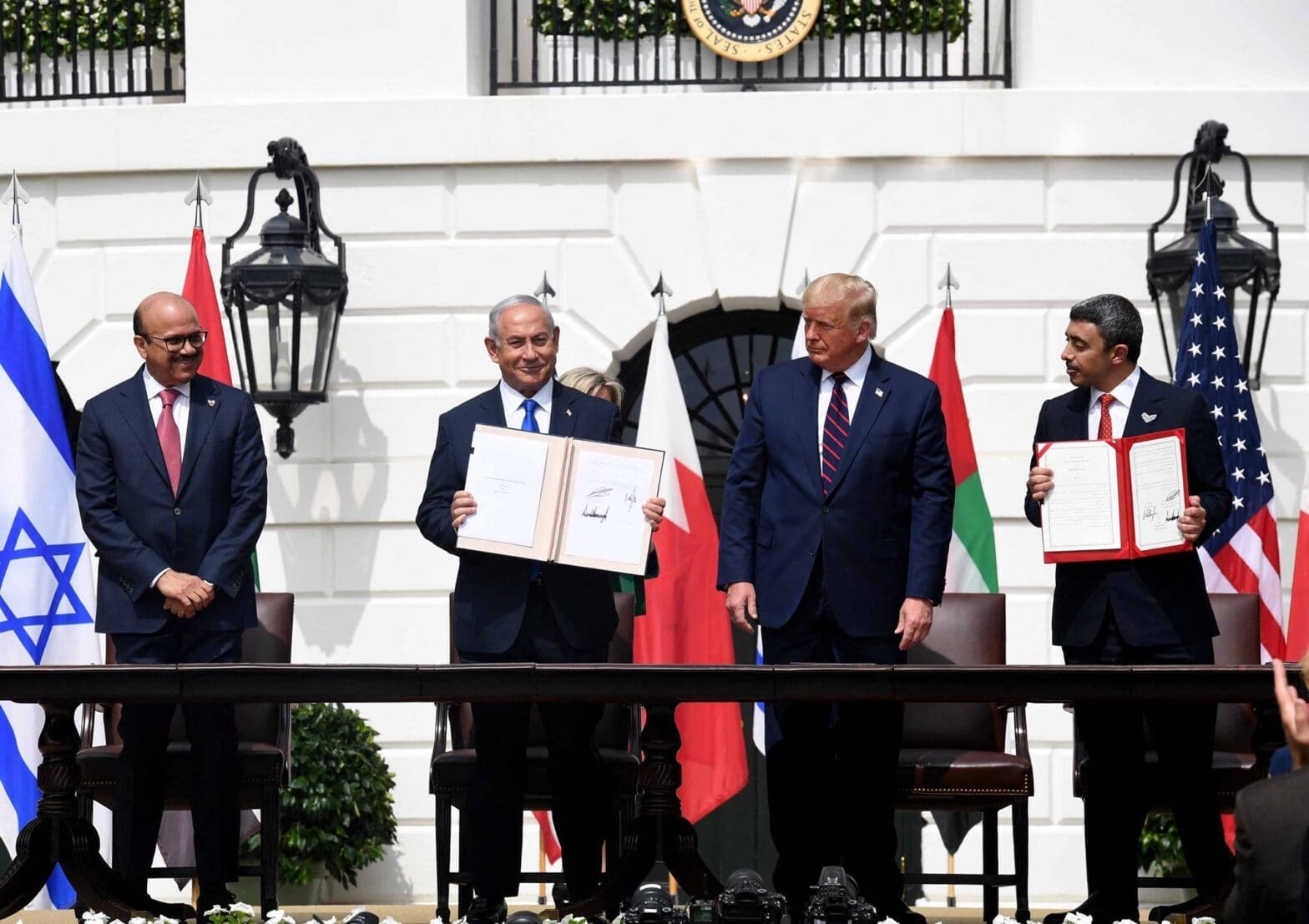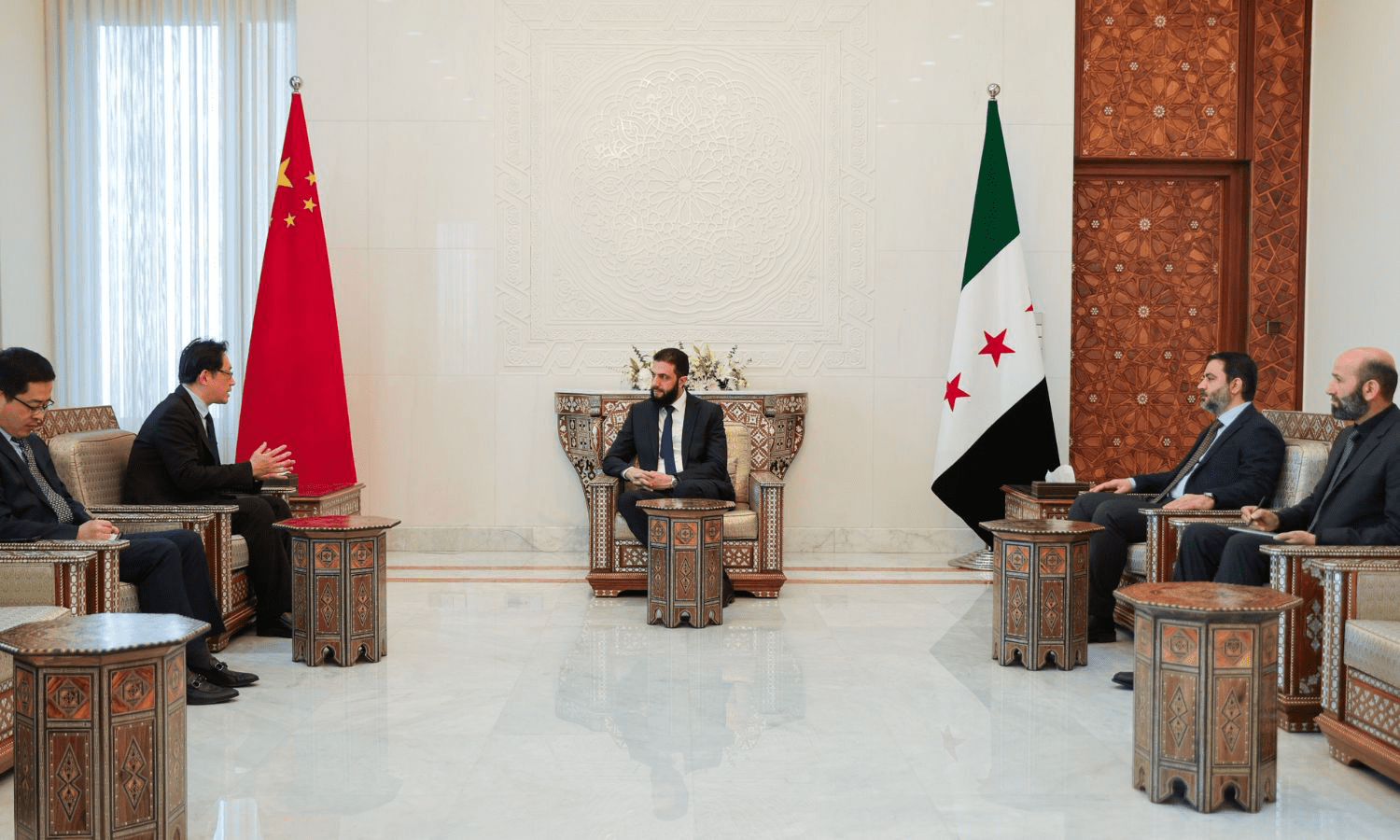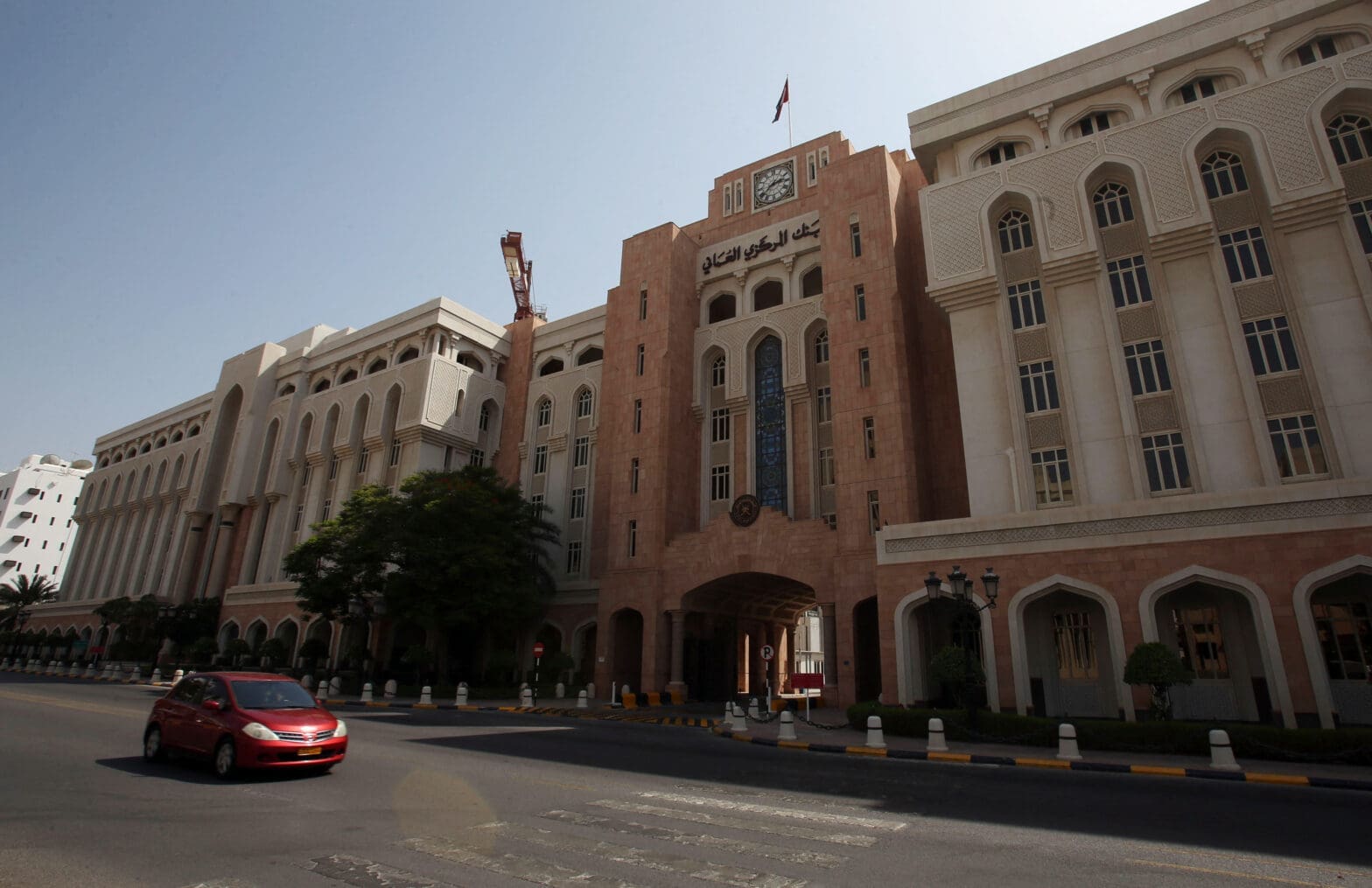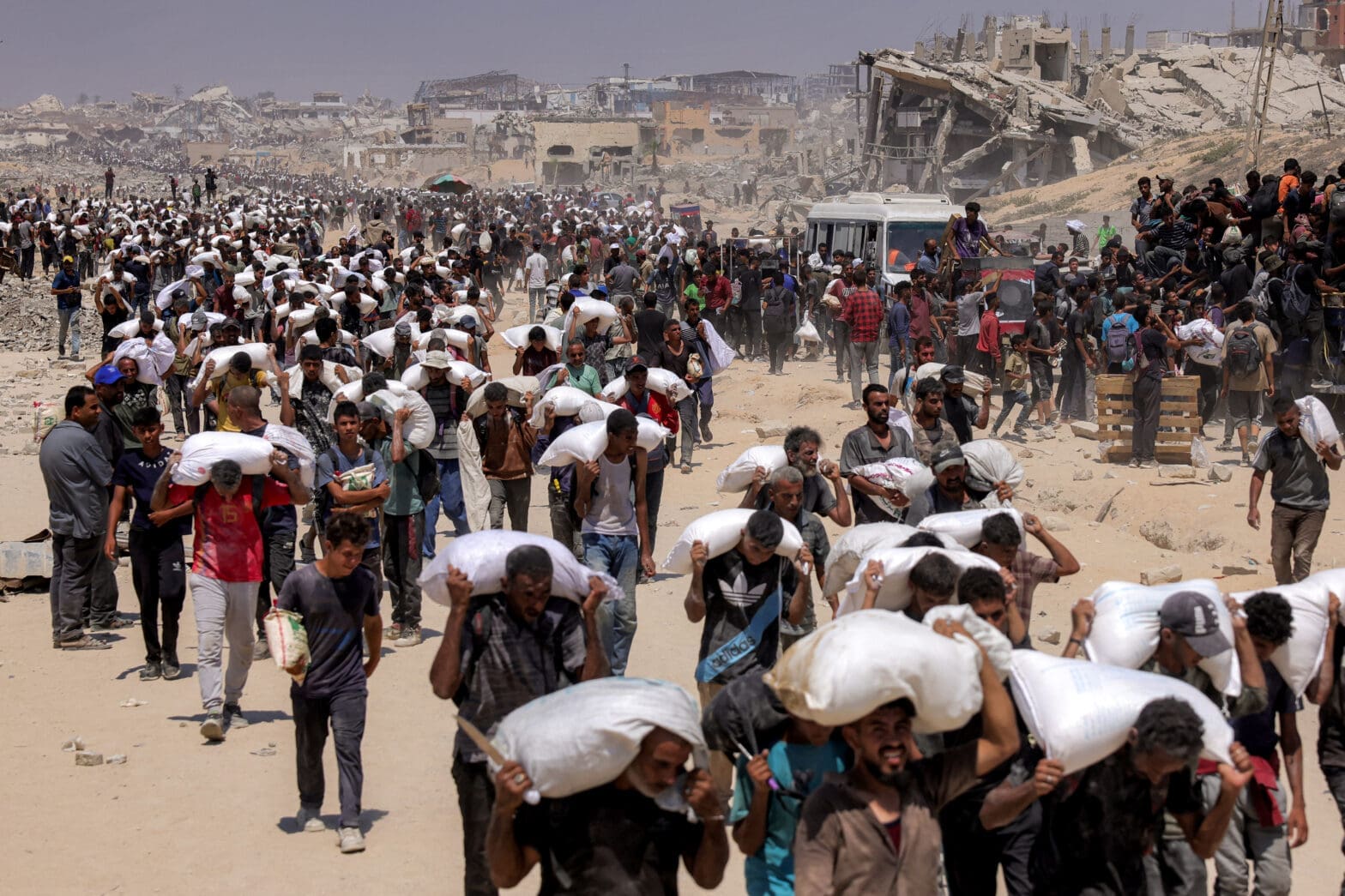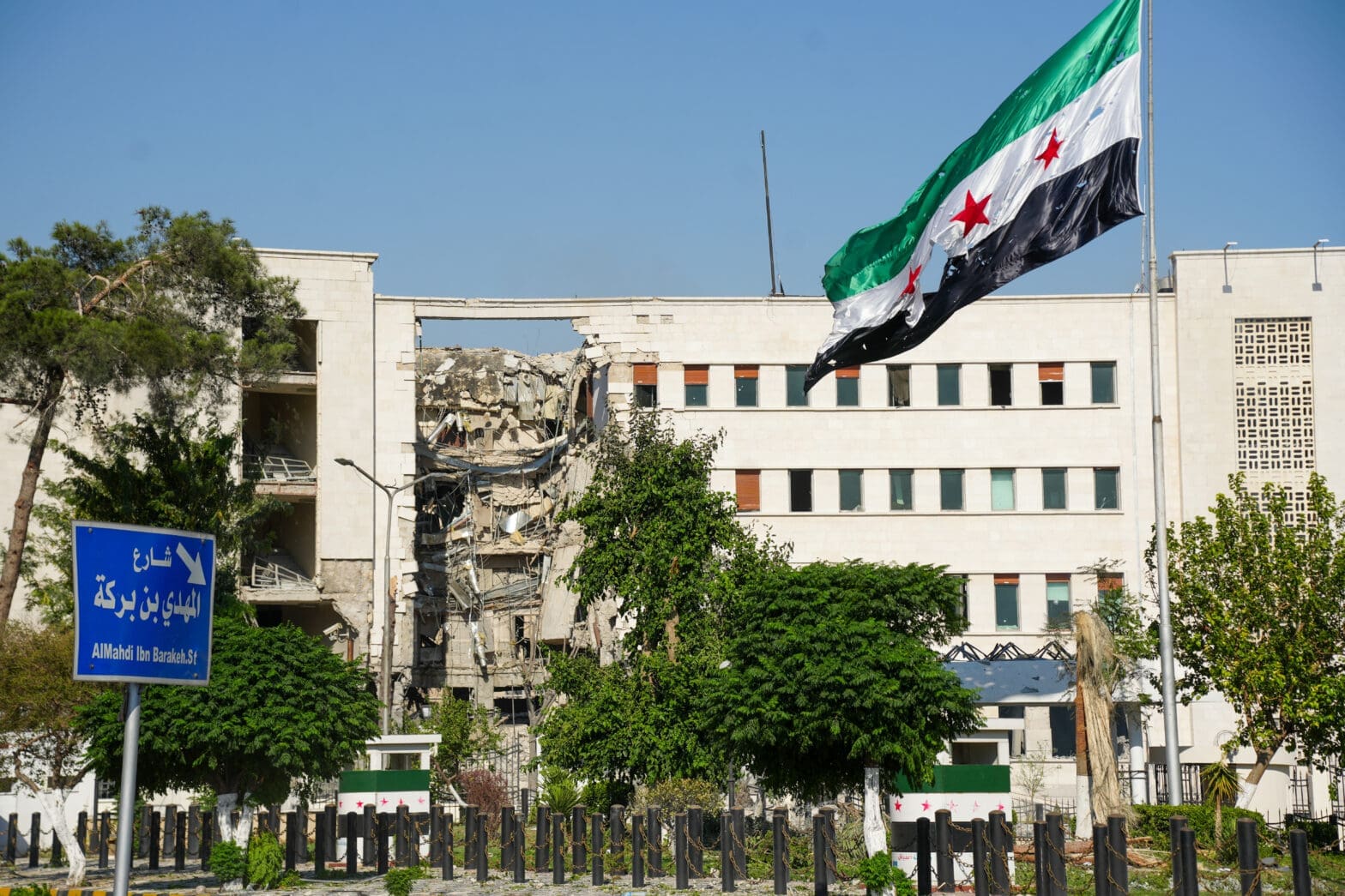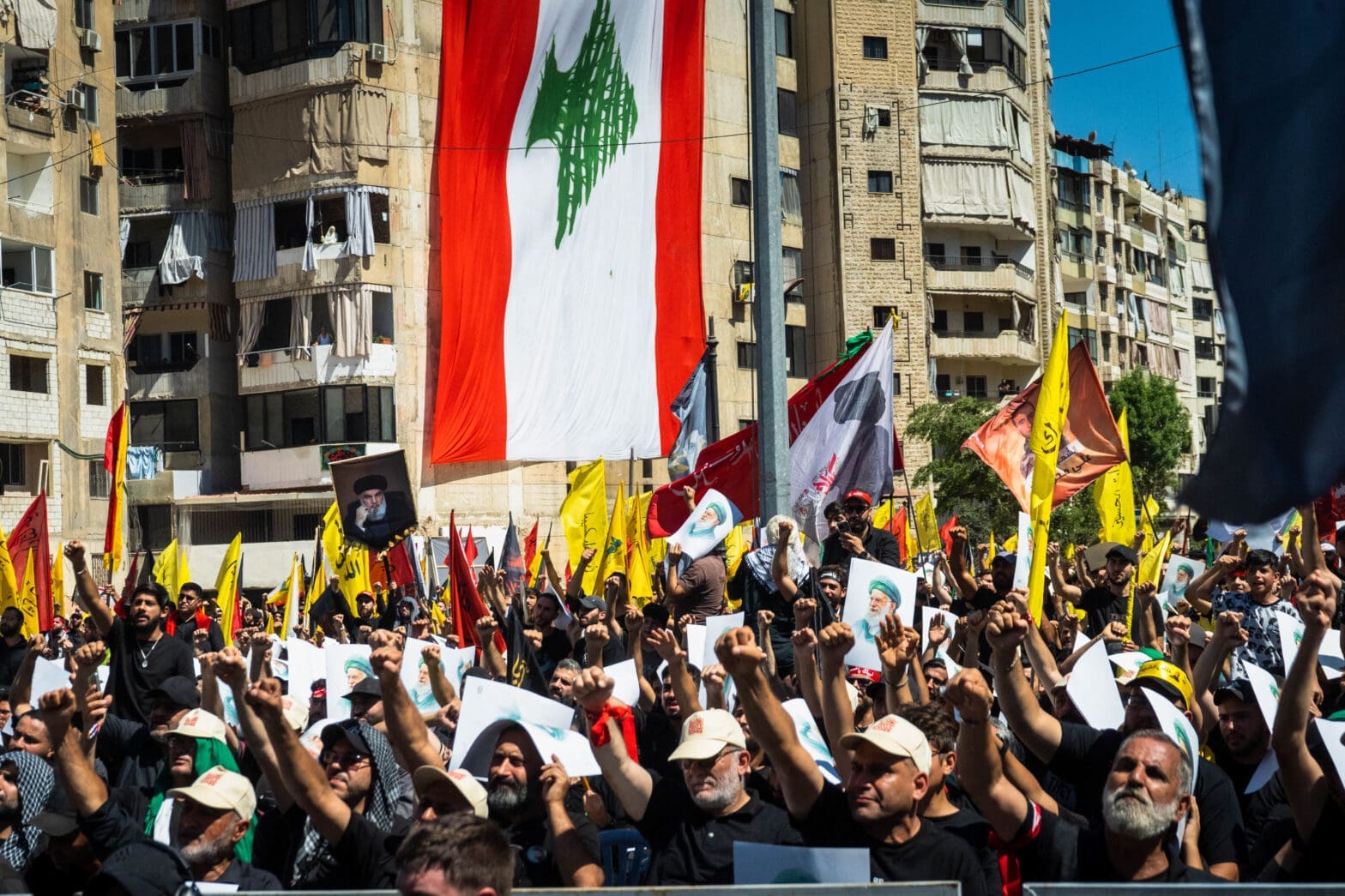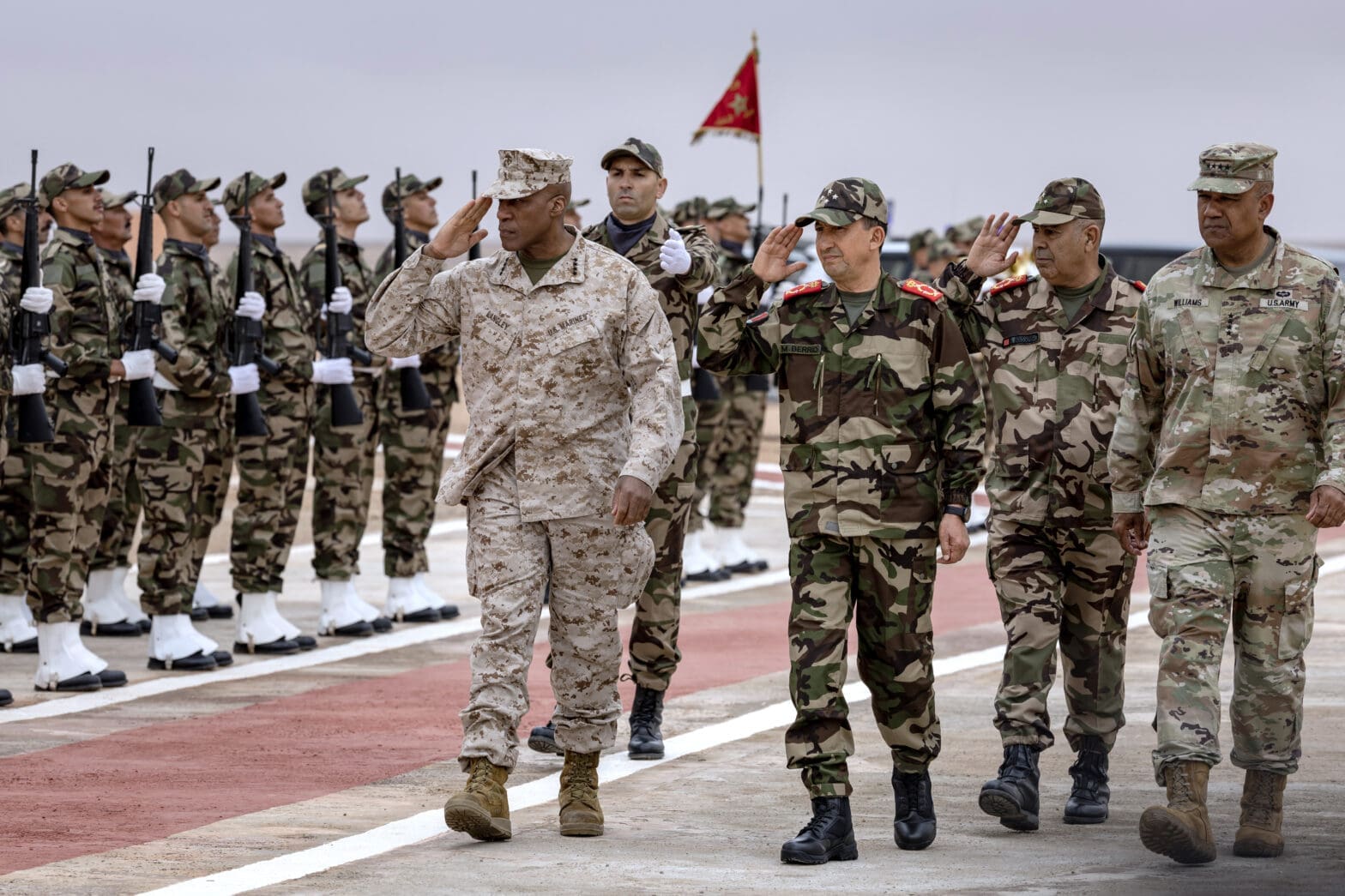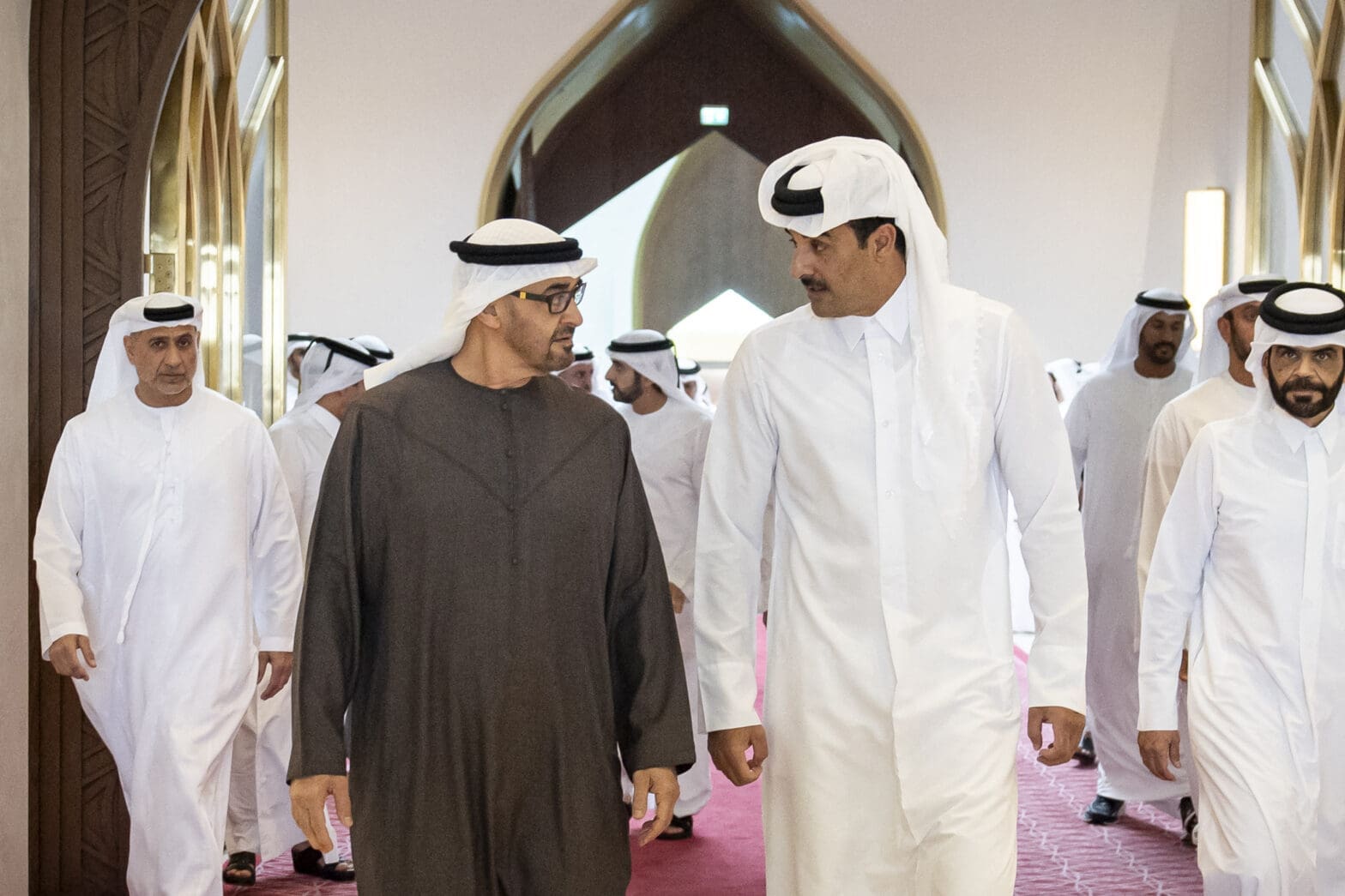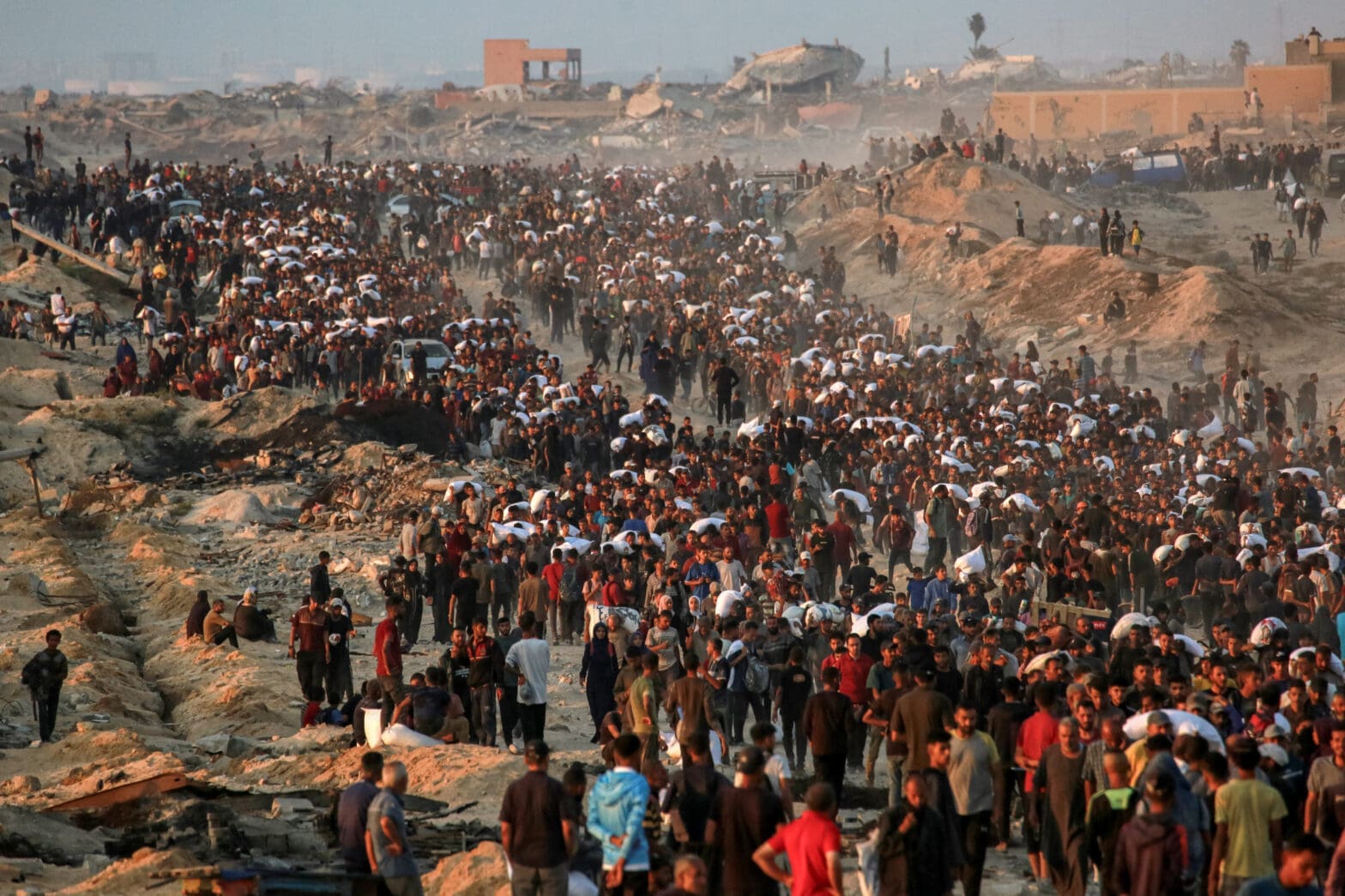One month after the Trump administration’s abduction of Venezuelan President Nicolás Maduro, the contours of a new oil order are beginning to emerge. U.S. authorities continue to seize “shadow fleet” oil tankers—at least seven, so far—carrying sanctioned Venezuelan exports in a pressure campaign that began in the run-up to Operation Absolute Resolve. President Donald Trump… Continue reading How Trump’s Venezuela Play Is Testing a New Global Oil Order
Blog Category: Home Featured Blog
How Damascus Reclaimed Syria’s Northeast, and What Integration Now Means
In the past year, a fractured and war-torn Syria has been prone to dramatic geopolitical change driven by rapid military advances. In December 2024, a force led by Hayat Tahrir al-Sham (HTS) swept out of Syria’s northwest and ended the Assad regime’s half-century rule in a matter of weeks. Just more than 12 months later,… Continue reading How Damascus Reclaimed Syria’s Northeast, and What Integration Now Means
Why the Gulf States Share in the AI Governance Dilemma
When regulators began discussing adjustments to the European Union’s Artificial Intelligence Act of 2024, mere months after its passage, it was a clear sign of the regulatory challenges in this sector. The comprehensive legislation was the first of its kind, and even seasoned regulators like the EU were struggling amid political and corporate pressure, unable to set realistic and effective measures to guide rapid advances in AI technology. For observers in the Gulf, these challenges were a warning sign of the urgent need to balance innovation with risk management. … Continue reading Why the Gulf States Share in the AI Governance Dilemma
As Latest Yemen Crisis Eases, A Dangerous Moment Arises
After a transformative few weeks that have seen its political map change drastically, Yemen is once again at a dangerous crossroads. The risk of escalation and renewed confrontation remains real, even as sustained efforts are being made to prevent such an outcome. Recent events have underscored just how narrow the margin for error has become,… Continue reading As Latest Yemen Crisis Eases, A Dangerous Moment Arises
Israel’s Somaliland Gambit Reflects a Doctrine of Endless Escalation
Israel’s recognition of Somaliland as an independent state, ushered in by Foreign Minister Gideon Saar’s visit on January 6, is a geopolitical watershed that sheds further light on Israel’s evolving regional strategy after October 7. Much of the early commentary has been distorted by claims that the move is part of a transactional scheme to relocate Palestinians en… Continue reading Israel’s Somaliland Gambit Reflects a Doctrine of Endless Escalation
Momentous change sweeps Yemen as STC overreaches in Hadramawt
In little over a month, Yemen has undergone significant changes on the ground and in the political dynamics underpinning more than ten years of war. In early December, the Southern Transitional Council (STC) initiated a military operation in the governorates of Hadramawt and al-Mahra that brought nearly the entirety of southern and eastern Yemen under… Continue reading Momentous change sweeps Yemen as STC overreaches in Hadramawt
Is Iran Changing Its Defense Doctrine?
On January 6, Iran’s newly established Defense Council issued a short but controversial statement. While reaffirming Iran’s long-standing claim that it does not seek war, the council declared that Tehran no longer considers itself limited to responding after an attack and would treat “objective signs of threat” as part of its security calculus. The phrasing is deliberately cautious,… Continue reading Is Iran Changing Its Defense Doctrine?
Reconstructing Gaza According to Trump’s Plan Would Be a Disaster
When Donald Trump’s 20-point “peace plan” was unveiled in late September, many countries in the Middle East and Europe rallied around it. The reason was not so much the plan’s contents, which justifiably raised eyebrows, but rather that it appeared to be the last, best hope to halt Israel’s appalling military onslaught in Gaza. For more than a month afterward, the U.S. sought a UN Security Council… Continue reading Reconstructing Gaza According to Trump’s Plan Would Be a Disaster
As War Looms, Lebanon Is Forced to Negotiate Under Fire
When Lebanese President Joseph Aoun announced in October that his country was prepared to engage in indirect negotiations with Israel, it marked a rupture with decades of political taboo—and was a tacit admission of how precarious Lebanon’s position has become. The move was not in response to a sudden diplomatic opening. It reflected something more… Continue reading As War Looms, Lebanon Is Forced to Negotiate Under Fire
Egypt’s New Development Plan Perpetuates IMF Policies
In September, the Egyptian government issued a document entitled “The National Narrative for Economic Development: Policies Supporting Growth and Employment,” laying out a comprehensive vision for the country’s development over the next decade. The plan’s content and the timing of its release, however, suggest that it is less a new beginning than a repackaging of… Continue reading Egypt’s New Development Plan Perpetuates IMF Policies
Syria, One Year On, Is Still Emerging From the Rubble of War
The first-year anniversary of the fall of Syria’s Assad regime is a moment that invites celebration: The end of 54 years of Baathist rule and the conclusion of a 14-year civil war that took thousands of lives, displaced more than half the population, and shattered the country’s physical and social foundations. Syrians have much to… Continue reading Syria, One Year On, Is Still Emerging From the Rubble of War
Peacekeepers and UN Resolutions Will Not Save Gaza
On November 17, the United Nations Security Council passed Resolution 2803, which endorsed U.S. President Donald Trump’s 20-point plan for Gaza and authorized the deployment of an International Stabilization Force (ISF) to the territory until the end of 2027. Saudi Arabia, Qatar, Egypt, Jordan and the United Arab Emirates all subsequently backed the Security Council… Continue reading Peacekeepers and UN Resolutions Will Not Save Gaza
Can Lebanon Disarm Hezbollah Without First Rebuilding the State?
Since August, the Lebanese Armed Forces (LAF) have been under instructions from their government to present—by year’s end—a plan to bring all weapons in the country under state control. The directive is mainly targeted at Hezbollah, the Shia-led militia that had in recent years grown more powerful than the national army. Yet for decades, Lebanon’s… Continue reading Can Lebanon Disarm Hezbollah Without First Rebuilding the State?
As Sudan’s War Shifts, Atrocities Surge and Diplomacy is Tested
The balance of power in Sudan’s war appears to be shifting, and with it has come a horrifying expansion of atrocities against the country’s long-suffering civilian population. On October 26, the paramilitary Rapid Support Forces (RSF) conquered the city of El Fasher, the capital of Darfur and the last stronghold of the Sudan Armed Forces… Continue reading As Sudan’s War Shifts, Atrocities Surge and Diplomacy is Tested
Saudis Consider Major Rule Change that Could Boost Their Economy
When news broke in late September that Saudi Arabia’s stock exchange was considering removing limits on foreign ownership of listed companies by the end of the year, the market surged, helping to erase losses that had made the Tadawul All-Share Index (TASI) one of the world’s lowest-performing stock markets in 2025. Although there have been… Continue reading Saudis Consider Major Rule Change that Could Boost Their Economy
As Renewal of Iran-Israel War Looms, What Lessons Can Be Learned from June?
Since Israel’s 12-day war with Iran came to an end last June, the prospect of a return to fighting has loomed large, primarily because Israel has yet to achieve all of its goals vis-a-vis Iran and may be determined to do so. Though the war was likely driven by more than one consideration, Israel’s overarching… Continue reading As Renewal of Iran-Israel War Looms, What Lessons Can Be Learned from June?
Is Israel Undermining its Ties with China?
For decades, China and Israel have maintained a relatively strong and pragmatic relationship, grounded in extensive trade and technological cooperation. Yet after two years of Israeli devastation in Gaza, along with its broader military operations across the Middle East, it is clear that Israel’s actions have strained its relationship with Beijing. Although their ties have… Continue reading Is Israel Undermining its Ties with China?
Jordan’s Energy Dilemma Drives Detente with China
Israel’s war in Gaza has presented Jordan with a pressing conundrum. The resource-starved kingdom’s lack of fossil fuels has long forced it to rely heavily on energy imports, largely from the Gulf—but also from its neighbor, Israel. Yet the Jordanian public, particularly its large Palestinian population, is outraged by Israel’s ongoing military actions in Gaza.… Continue reading Jordan’s Energy Dilemma Drives Detente with China
Morocco’s Youth Protests and the Limits of its Governance Formula
On September 27, thousands of young Moroccans took to the streets to denounce years of poor governance and misplaced spending priorities. The demonstrations, organized by a collective called “GenZ 212,” have spread to at least 10 cities and quickly become the largest anti-government movement since the Rif protests of 2016-2017. Fueled by anger over the… Continue reading Morocco’s Youth Protests and the Limits of its Governance Formula
With Mediation More Important Than Ever, Mediators Must Be Protected
Conflict mediation has emerged as one of the most indispensable tools in the contemporary international system. At a time when great-power competition intensifies across multiple domains, political, economic, and technological, the ability of neutral mediators to facilitate communication and reduce the risks of escalation is more crucial than ever. Yet despite its importance, conflict mediation… Continue reading With Mediation More Important Than Ever, Mediators Must Be Protected
Survival is Paramount as Decision Looms on Trump’s Gaza Proposal
U.S. President Donald Trump’s 20-point proposal for a ceasefire in Gaza, announced alongside Israeli Prime Minister Benjamin Netanyahu at the White House, is far from a clear and credible blueprint for ending the onslaught on the besieged Palestinian territory. Vague and devoid of timetables, it reads less like a peace plan and more like the… Continue reading Survival is Paramount as Decision Looms on Trump’s Gaza Proposal
Syria’s First “Free” Parliament Masks Fragmentation and Executive Control
Since the fall of Bashar al-Assad last December, Syria’s transitional authorities have revealed a dilemma at the center of the country’s new political order. What looks on the surface like electoral tinkering instead points to something deeper: a crisis of legitimacy, state capacity, and sovereignty, which will define Syria’s transition and reverberate across the region.… Continue reading Syria’s First “Free” Parliament Masks Fragmentation and Executive Control
The UNSC’s Arms Embargo on Darfur Needs Robust Monitoring
On September 12, the UN Security Council unanimously renewed its arms embargo on Sudan’s western region of Darfur. The decision extends for a year the territorial embargo against the supply of weapons, ammunition, military equipment and related material. It also renews targeted sanctions against individuals, namely travel bans and asset freezes, with the aim of… Continue reading The UNSC’s Arms Embargo on Darfur Needs Robust Monitoring
With Ethiopia’s GERD Active, Tensions Mount Along the Nile
After years of mounting tensions between Nile River Basin countries over Ethiopia’s plans to build the Grand Ethiopian Renaissance Dam (GERD) far upstream, the project was finally inaugurated on September 9 without a new agreement in place for the distribution of the Nile’s vital water resources. For Egypt and Sudan, who are downstream from the… Continue reading With Ethiopia’s GERD Active, Tensions Mount Along the Nile
Israel’s Targeting of Houthi Ministers Opens A New Phase of Conflict
Late last month, the residents of Sana’a witnessed something new. Although the smoke billowing over the Yemeni capital’s skyline was familiar for those who have experienced their fair share of war, the villa from which it emanated had been hosting a gathering of Houthi government ministers. An Israeli air raid had attacked the location, killing… Continue reading Israel’s Targeting of Houthi Ministers Opens A New Phase of Conflict
Are Mediterranean Gas Fields Gold Mines or Volcanoes?
The Mediterranean is a region more practiced at crisis management than resolution. From Cyprus to Palestine, Lebanon to Libya, migration to energy, the region’s chronic fault lines simmer beneath the surface, flitting between active and dormant states like geopolitical volcanoes. Time and again, the states attempting to contain or capitalize on these crises end up… Continue reading Are Mediterranean Gas Fields Gold Mines or Volcanoes?
Israel’s Strike on Doha: What It Means for the Region
On September 9, Israel’s military fired several missiles into a residential neighborhood in Doha targeting a meeting of senior Hamas officials discussing the latest American proposal for a ceasefire in Gaza. Although six people were killed, including a Qatari security official, none were the primary targets. The global backlash to the strike has been intense,… Continue reading Israel’s Strike on Doha: What It Means for the Region
Why Latin America’s New Left Is at the Forefront of Palestine Solidarity
Amid the ongoing humanitarian catastrophe in Gaza, several Latin American governments, such as Belize, Bolivia, Brazil, Colombia, Cuba, Honduras, Nicaragua and Chile, have emerged as leading supporters of the Palestinian struggle and prominent critics of Israeli policy. In response to what some of them consider as a genocidal campaign in Gaza, these governments have severed… Continue reading Why Latin America’s New Left Is at the Forefront of Palestine Solidarity
Turkish-Kurdish Peace Talks Must Navigate Domestic Politics and Regional Shifts
When a group of Kurdistan Workers’ Party (PKK) fighters set fire to their weapons at a ceremony in the Iraqi city of Sulaymaniyah in July, it was more than a historic image. It was one of the most prominent steps so far toward ending an intractable conflict that has claimed more than 40,000 lives, reshaped… Continue reading Turkish-Kurdish Peace Talks Must Navigate Domestic Politics and Regional Shifts
Trump’s Climate Silence Risks Undermining Gulf Engagement
Earlier this year, U.S. President Donald Trump returned to the Gulf with a familiar list of themes: deals, defense and data. Over four days, he visited Saudi Arabia, the UAE and Qatar, securing over $2 trillion in investment pledges and announcing sweeping agreements on artificial intelligence, fossil fuel infrastructure and defense. Yet one issue was… Continue reading Trump’s Climate Silence Risks Undermining Gulf Engagement
Five Years On, UAE-Israel Normalization Weathers the Gaza Storm
When the United Arab Emirates normalized relations with Israel five years ago, it likely expected a degree of discomfort given negative public opinion of Israel in the region amid its ongoing military occupation of Palestine. But the intensification of violent conflict—first in May 2021, and then on a much larger scale after October 7, 2023—has… Continue reading Five Years On, UAE-Israel Normalization Weathers the Gaza Storm
Baghdad has tied itself to Iran, endangering Iraq’s future
When Israel and the United States launched a bombing campaign against Tehran’s nuclear program in June, Iran-aligned forces that have spent years building their influence and arsenals in neighboring Iraq were oddly silent. Yet despite their decision to stay out of the so-called “12-day war,” pro-Iranian groups still have far-reaching influence in Baghdad, while co-existing… Continue reading Baghdad has tied itself to Iran, endangering Iraq’s future
Is the United States Set to Re-Engage in Libya?
A quiet visit to Libya by a senior Trump advisor has raised the specter of Washington taking a renewed interest in the North African country—and the question of whether such engagement could help finally resolve the country’s prolonged political deadlock. Massad Boulos, who advises U.S. President Donald Trump on Middle Eastern and African affairs, visited… Continue reading Is the United States Set to Re-Engage in Libya?
Algeria-Italy Partnership: A New Axis Reshaping the Mediterranean?
When Algerian President Abdelmadjid Tebboune arrived in Rome on July 24 for a state visit, the diplomatic language expressed alongside Italian Prime Minister Giorgia Meloni was effusive. Both leaders described an increasingly crucial partnership to their respective broader strategic ambitions. Tebboune pointed to Italy as “an essential and serious partner in accompanying Algeria’s ambitious economic… Continue reading Algeria-Italy Partnership: A New Axis Reshaping the Mediterranean?
Assessing China’s Shifting Posture on Syria
Chinese officials face an uphill battle in managing relations with Syria’s new interim government following the collapse of Bashar al-Assad’s regime in December 2024. Both seem desirous to find ways to re-engage, but the gap between expectations for the moment remains too wide. Beijing wants the foreign terrorist threat removed from Syria. Syrian authorities, however,… Continue reading Assessing China’s Shifting Posture on Syria
Recognizing a Palestinian State Is Not a Policy on Its Own
Against the backdrop of the daily horrors taking place in Gaza, a wave of Western countries have decided to recognize the State of Palestine. After Ireland, Spain and Norway took the step in 2024, France and Australia have pledged to follow suit at the United Nations General Assembly in September. The United Kingdom and Canada… Continue reading Recognizing a Palestinian State Is Not a Policy on Its Own
Small Tax, Big Bargain: Oman Tests Its Rentier Contract
In June 2025, Oman took a step that no Gulf monarchy had attempted before: announcing plans for direct taxation starting in 2028. At 5 percent on earnings above 42,000 OMR (~$109,000)—roughly the top 1 percent of earners—the financial returns will be modest. The signal, however, is not. By introducing a narrowly targeted personal income tax… Continue reading Small Tax, Big Bargain: Oman Tests Its Rentier Contract
With Lebanon and Syria in Political Flux, Can They Forge A New Relationship?
Post-Assad Syria is searching for its place in Lebanon. Since assuming the presidency in January, President Ahmed al-Sharaa has been keen to emphasize that the Syria of today differs from the one under the Assad regime, which managed affairs in Lebanon for decades through security agencies and local allies. The new administration is seeking to… Continue reading With Lebanon and Syria in Political Flux, Can They Forge A New Relationship?
Growing Ties Between Eastern Libya and Türkiye Increase Tensions in the Mediterranean
For nearly six years, Libya’s eastern-based House of Representatives (HoR) has rejected attempts by the internationally-recognized authorities in Tripoli to ratify a maritime border agreement with Türkiye on the grounds that they were illegal and violated Libyan national sovereignty. In June, however, amid steadily warming relations between the HoR-appointed Government of National Stability (GNS) and… Continue reading Growing Ties Between Eastern Libya and Türkiye Increase Tensions in the Mediterranean
Israel’s Four Pillars of Mass Starvation in Gaza
It has been four months since Israel unilaterally terminated a ceasefire with Hamas and imposed a crippling siege on Gaza, preventing the entry of nearly all food, clean water, medicine and other essential supplies. The results have been catastrophic. On July 19 alone, 18 people were recorded as having died of starvation, while the… Continue reading Israel’s Four Pillars of Mass Starvation in Gaza
Is BRICS+ Maturing Amid the Global Economic Turbulence?
While there have been marked criticisms from outside the partnership, the 2025 BRICS+ Leaders Summit, held on 6-7 July 2025 and including its new Middle East and North Africa-based members, was a quiet success for host country Brazil and those member states focused on leveraging the partnership to secure better terms of trade and more… Continue reading Is BRICS+ Maturing Amid the Global Economic Turbulence?
PKK Recalibrates from Armed Struggle to Politics in Türkiye
“We voluntarily destroy our weapons … as a step of goodwill and determination,” said senior Kurdistan Workers’ Party (PKK) leader Bese Hozat, speaking in front of a gathering of the group’s fighters. The footage, filmed last Friday in the northern Iraqi city of Sulaimaniyah, then shows the fighters—about 30 of them—placing their weapons inside a… Continue reading PKK Recalibrates from Armed Struggle to Politics in Türkiye
Israel’s Attack on Damascus is a Sign of Its Increasing Frustration and Belligerency
On July 16, the Israeli army launched a massive air strike against the Syrian Defense Ministry, killing at least three people. The strike represents a dramatic escalation against key institutions of a sovereign state, following two days in which the Israeli army targeted Syrian military convoys moving south. While Israel claims that the strikes are… Continue reading Israel’s Attack on Damascus is a Sign of Its Increasing Frustration and Belligerency
As Pressure Mounts, Can Lebanon Handle Hezbollah’s Disarmament?
The recent visit of U.S. special envoy Tom Barrack to Beirut has revived the perennial question of Hezbollah’s fate were it to give up its arms. Three weeks after handing the Lebanese government a letter demanding it take immediate steps to disarm the group, Barrack presented a roadmap for implementation that offers Beirut a window… Continue reading As Pressure Mounts, Can Lebanon Handle Hezbollah’s Disarmament?
Will the Maghreb States Have to Pick Between the U.S. and China?
Growing tensions between the U.S. and China are having a significant impact on the Maghreb region. While not a frontline theater of confrontation, Morocco, Algeria, Tunisia, Libya and Mauritania are increasingly caught in the crosscurrents of great power competition, with implications in the economic, political, security and technological spheres. In response, they have sought to… Continue reading Will the Maghreb States Have to Pick Between the U.S. and China?
What the UAE Hopes To Gain from Israel’s Growing Isolation
When U.S. President Donald Trump visited the Gulf last month, complete with fanfare and choreographed spectacle, it reinforced a growing sense among Gulf states that the region is on a political ascent. The four-day tour of Saudi Arabia, Qatar and the United Arab Emirates was Trump’s first major foreign trip in his second term—a deliberate… Continue reading What the UAE Hopes To Gain from Israel’s Growing Isolation
What the Iranian Attack on Qatar Means for the Future of Gulf Security
Iran’s ballistic missile attack on the Qatari airbase at Al Udeid was viewed by many international analysts and media strictly through the lens of the confrontation between the U.S., Israel and Iran. Widely seen as a symbolic move, the attack’s lack of casualties allowed U.S. President Donald Trump to pursue his preferred option of de-escalation… Continue reading What the Iranian Attack on Qatar Means for the Future of Gulf Security
Syria’s Opening with the West Poses Russia Dilemma for Damascus
Since President Donald Trump’s Gulf tour in mid-May, U.S.-Syria relations have evolved significantly. Washington’s lifting of its most crippling sanctions on Syria, the appointment of an American envoy to the country, Trump’s meeting with Syrian President Ahmed al-Sharaa in Riyadh and the reopening of the U.S. ambassador’s residence in Damascus all illustrate a new reality… Continue reading Syria’s Opening with the West Poses Russia Dilemma for Damascus
As Israel Imposes Starvation and Displacement on Palestinians, U.S. Action is Demanded
The scenes of horror have become a regular occurrence. Tens of thousands of desperately hungry Palestinians packed into endless metal queues under a blistering sun, subjected to biometric scanning as they flood a dystopian aid complex, hoping for a box of food. Each day, hundreds are killed or wounded while making the harrowing choice between… Continue reading As Israel Imposes Starvation and Displacement on Palestinians, U.S. Action is Demanded
How Israel’s Dangerous New Grand Strategy Has Set Mideast on Fire
For more than a decade, Israeli Prime Minister Benjamin Netanyahu warned the world of Iran’s nuclear ambitions. He repeatedly accused Tehran of being on the cusp of acquiring a bomb, condemned diplomatic overtures as capitulation, and vowed Israel would never allow Iran to become a nuclear power. Yet despite the endless threats, leaked war plans,… Continue reading How Israel’s Dangerous New Grand Strategy Has Set Mideast on Fire

